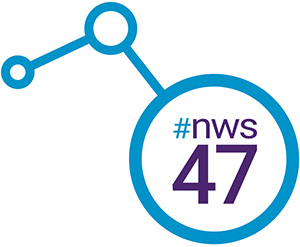Why it’s important that women help plug the cyber skills gap

There will be 1.8m unfilled information security jobs by 2022, according to the Global Information Security Workforce Study (GISWS). Yet the hurdle isn’t simply to fill vacancies, it’s to build a talented and diverse workforce.
Fresh ideas and new approaches
The cyber skills shortage needs to be tackled on several fronts. Firstly, there is a need to develop a more diverse workforce – for example, by encouraging more women into what’s still a male-dominated field.
Not only does this expand the size of the talent pool, it also brings fresh ideas and new approaches, believes Clare Johnson, head of cyber security at the University of South Wales (USW).
“If you have a team full of one particular type of person, it stifles innovation. People with different life experiences bring alternative ways of thinking and doing. This is especially valuable in IT functions in universities and colleges, which serve students and staff from varied backgrounds who use institutional systems for vastly different purposes. We can’t afford to be less innovative than they are.”
In her determination to develop the next generation of female IT specialists, Clare is casting her net far beyond the university’s walls. Last September, she set up Women in Cyber Wales. The group has already attracted 70 members, many of whom attend regular networking meetings. Clare says:
“Women who work in technology often feel isolated. Support networks like this are part of the answer. There is a growing number of similar groups around the country. LinkedIn’s a good place to find some of them.”
Clear, attractive career pathways
Jisc is working on a programme to develop clear, effective career pathways for technical staff. Training and support director Shirley Wood says this is a pressing issue for most organisations working in HE and FE. Shirley comments:
“We’ve got technical specialists and training teams working together to define job roles and measure skills against the SFIA Foundation’s skills and competency framework. We hope that, by defining clear progression routes and developing effective, tailored training, we can make sure our staff see that they’re valued, and see that we’re committed to their professional development.”
The next generation
Looking further into the future, Clare has been working with local communities to capture young imaginations – not least by creating an unofficial Brownies badge focused on cyber security. In May, she’s volunteered to host an event on campus for local Rainbows and Brownies (girls aged five to ten) to try their hand at a range of cyber security-related activities at USW. Clare says:
“I want to inspire girls before they get turned off IT. I’m hoping that by offering role models and highlighting opportunities, we can help to reverse the trend.”
Apprenticeships are also part of the solution to the technical skills shortage. Nineteen-year-old Nicole Stewart is in the second year of a degree apprenticeship, based at Jisc’s Harwell office, and a further two apprentices have joined her there this year. Shirley says:
“At age 18, we’re looking for people with a technical bent who are also well-rounded individuals with the drive to be self-starting and self-reliant. If they have a mature attitude when they come for interview, have done their homework about the organisation, and show us a can-do attitude, we know we’ve found an apprentice we can train up.”
Nicole, who has always been interested in engineering and technology, adds:
“For the first year at Jisc, I learned about various aspects of IT, and then my manager asked me what interests me most so I could start to specialise and shape my own career. As a result, this year I’m part of the new cyber threat intelligence team. For me, a degree apprenticeship beats the usual university route hands down.”
Looking to the future
Jisc, EDUCAUSE and representatives from universities in the UK and US are working together to explore the question, ‘how do we shape the future higher education workforce?’. The report looks at ways to offer more personalised career paths and flexible benefits to attract and retain a more diverse workforce. Determined to act on the findings of this report, Shirley concludes:
“Our plan is to create a wave that starts among our technical teams and ripples through the whole of Jisc.”













Responses